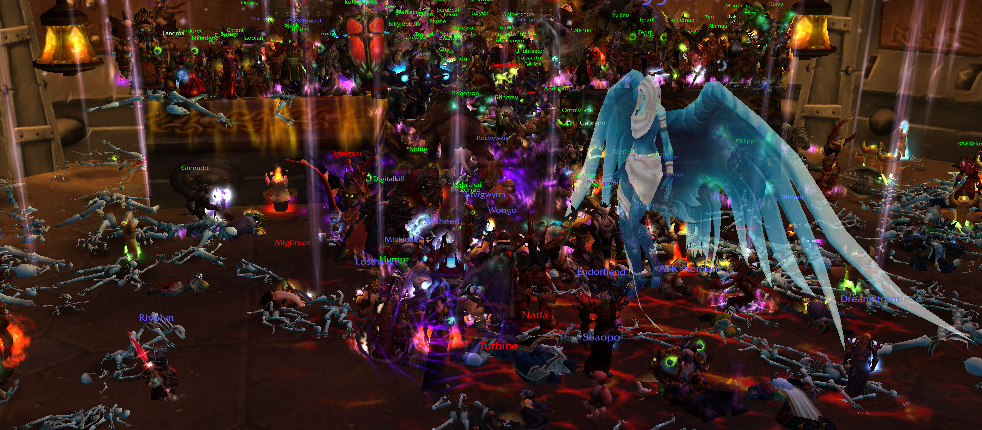
The Instructional Design and Motivational Mechanisms of World of Warcraft
22. Oktober 2012
I am happy to announce that my chapter in the massive handbook Computer Games and New Media Studies, edited by Johannes Fromme and Alexander Unger, has been published. At our lab we are interested in didactical ideas to be derived from computer games and other forms of online communication and collaborative problem solving.
 (source: http://videogamewriters.com/wp-content/uploads/2012/01/wow-raid.jpg)
(source: http://videogamewriters.com/wp-content/uploads/2012/01/wow-raid.jpg)
Abstract
A growing number of people are playing massive multiplayer online role-playing games (MMORPG). The most successful MMORPG so far, World of Warcraft, has 11.5 million paying subscribers who often spend more than 20 h per week playing the game, plus the extra time learning how to play. To achieve true mastery, at least 1,200 h of game play is needed. This chapter seeks to answer how WoW succeeds in teaching its users to become masters in such a dauntingly rich and complex game, how WoW keeps the players motivated and, finally, what can be learned from this entertainment form for the design of educational and training games. The chapter outlines the different levels of game complexity in WoW which make the game both accessible for casual gamers and challenging for hardcore gamers. There follows an analysis of World of Warcraft’s use of different instructional design approaches to help players learn and master the game: (1) discovery learning, (2) expansive problem-based learning and (3) learning within communities of practice. The chapter closes with implications for future educational games, stressing the importance of communities of practice to support discovery learning and problem solving.

